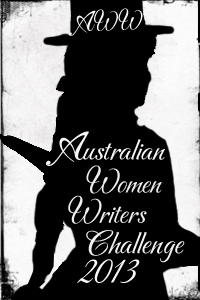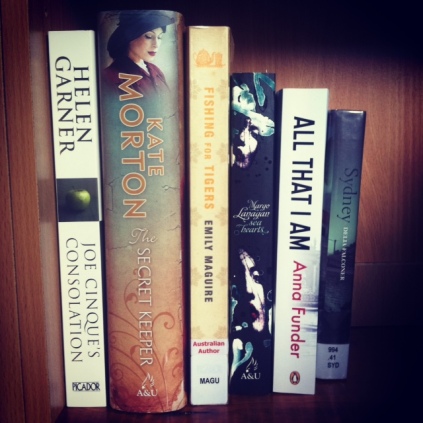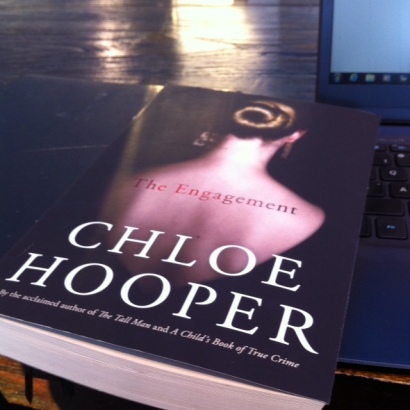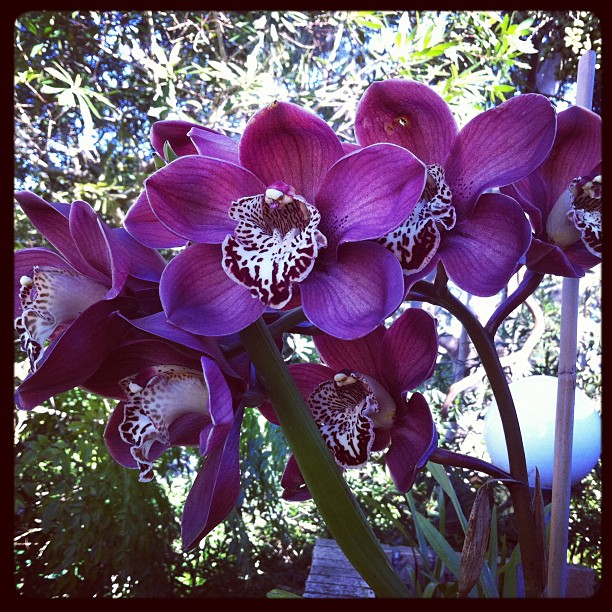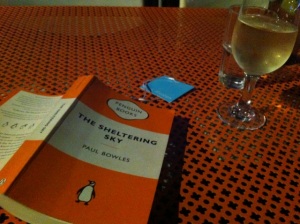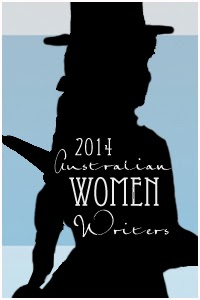 I participated in The ‘Australian Women Writers Challenge’ in 2013 for the second year. I had another wonderful reading and connecting experience that built on my 2012 experience and many years of enjoying Australian women’s writing.
I participated in The ‘Australian Women Writers Challenge’ in 2013 for the second year. I had another wonderful reading and connecting experience that built on my 2012 experience and many years of enjoying Australian women’s writing.
So what is the challenge? It’s about enjoying, supporting and promoting Australian women’s writing. You can read the background to the challenge here and sign up for 2014 here. Started in 2012 by Elizabeth Lhuede in response to an under-representation of women’s writing in Australian literary prizes being awarded, it has developed into a strong, diverse group of readers and reviewers celebrating and sharing writing by Australian women.
You can choose your level of engagement in the challenge and there’s no pressure to complete, just a target to aim for. In 2013, I aimed to read 6 and review at least 4. I achieved the reading part of the challenge with 7 reads. As in 2012, I haven’t done as well with the reviewing part but will capture the reads in this summary post and aim to review in 2014.
So why am I signing up again and why is it important?
Reflecting on the 2012 experience, I summarised my rationale as below:
I have a great love of Australian women’s writing. My Australian literature bookshelf is about 80% women writers. This love developed naturally during my university literature studies and has endured. It’s my history, lineage and backyard; they are not the only writers I enjoy but they are the writers closest to my experience with all the local references, influences and language especially as it relates to the experience of women.
I am engaging with the challenge again in 2014 to broaden this experience further; in 2012 and 2013, I have learned about so many new and exciting Australian women writers and absolutely loved the diverse reads. Through-out the challenge, I have been deliberately seeking out writers that are new to me and genres that I don’t normally read.
There is still plenty of work to do in promoting Australian women’s writing as this post indicates. As Margo Lanagan commented on twitter about this, it is depressing from a bookseller and it made me sad, sad that a person selling books couldn’t find such strength and beauty in Australian women writers as I do. It would at least help with book sales to people like me having this knowledge even if it’s not a personal love.
Perhaps I expect too much but in any case, as a result of the dialogue since this post, Mr Page has signed up for the challenge again in 2014. I hope this time the real challenge is finding the time to read as much as he wishes to in the rich diversity of Australian Women’s Writing – new and old. That is certainly my experience.
Reflecting on 2013
In 2013, I read 7 books towards my target of 6. Because I didn’t get to the reviews (again) in 2013 and in the spirit of the AWW community, here are my reads with a few brief comments.
- Fishing for Tigers by Emily Maguire – I loved blogging buddy Liv White’s review and was interested in the Vietnam setting. I’ve never been to Vietnam and the novel created a sense of the steamy beauty of Hanoi. ‘Fishing for Tigers’ focused on relationships played out against a sense of place and dislocation from home.
- Sea Hearts, by Margo Lanagan – There have been some fabulous reviews on this book, especially Elizabeth Lhuede’s review, and it has won numerous awards. ‘Sea Hearts’ took me to another world and showed the impact of longing, desire and power on a small island community where men can have beautiful women fashioned from seals. I don’t often read speculative fiction and I enjoyed it immensely as a new AWW genre this year.
- Sydney by Delia Falconer – the non-fiction book about my home town. I struggled with this book more than I wanted to but perhaps that was precisely the point. Sydney is a mass of contradictions; as Falconer writes: “Surely no other city’s pleasures are so bound up with revulsion, or their beauty so dependent on the knowledge of corruption.” ‘Sydney’ is well researched and captures Sydney in all its complexity.
- The Secret Keeper – Kate Morton – was a great read. I loved her previous books and this one didn’t disappoint. Kate Morton has enjoyed high praise including as top voted Australian writer in the 2013 booktopia poll. I also read ‘The Distant Hours‘ by Kate Morton though this story didn’t engage me as much as The Secret Keeper’s compelling narrative.
- The Scrivener’s Tale – Fiona McIntosh – was my first read of 2013 and an epic adventure traversing modern and mediaeval times. Again, this was outside my usual reading fare and I enjoyed it for its feistiness, sense of mystery and historical contexts.
- The Longing – Candice Bruce – was my last and favourite read of 2013. ‘The Longing’ tells the story of a modern day curator researching for an exhibition of an American romantic landscape painter. The lives of two 19th century Australian women that he painted are also told: one a Scottish immigrant and the other her Aboriginal servant. ‘The Longing’ is beautifully written and like a rich landscape itself. Author Bruce is by background an art historian, writer and curator so the detail is delicate and authentic. It’s about love, loss and longing, history, home and family.
What have I learnt from 2012 and 2013?
- AWW is a great journey; read outside your usual genres, discover some of the Australian Women Writers – recent or past – that you haven’t encountered up till now.
- You don’t have to review in the order that you read and you don’t have to review at all. That said, I get great value from the reviews of others so I am hoping to contribute more in this regard in 2014 during the year rather than at the end and by learning to write better reviews.
- The AWW reading and writing community is fantastic. You can connect on the blog, through twitter @AusWomenWriters or hashtag #AWW2014, through Goodreads; there are readers, writers and reviewers from all walks of life reading so diversely and widely. Even though I didn’t review, I tweeted and blogged and contributed in that way and made some valued connections with like-minded readers.
- The consolidated reviews are excellent and highlight the work of AWW readers and writers across all genres. Check out the review listings here – there’s plenty of inspiration and information.
- It’s really all about raising awareness of Australian women writers to inform reading choices.
What am I planning to read (and review) in 2014?
My exciting list so far for 2014:
Michelle de Krester – Questions of Travel
Hannah Kent – Burial Rites
Carrie Tiffany – Mateship with Birds
Favel Parrett- Past the Shallows
A special thanks to Elizabeth Lhuede for initiating the challenge in 2012 and for the 2013 team for maintaining the hard work of holding it all together for the benefit of us all.
I hope you’ll join the challenge!


